
Difference between Registered and Unregistered Trademark
A trademark is a word, logo, symbol, pattern, or phrase that distinguishes its proprietor’s goods and services from those of others. Trademarks are governed by the Trademark Act 1999. Act provides for the registration of trademarks but it is not mandatory to do so.
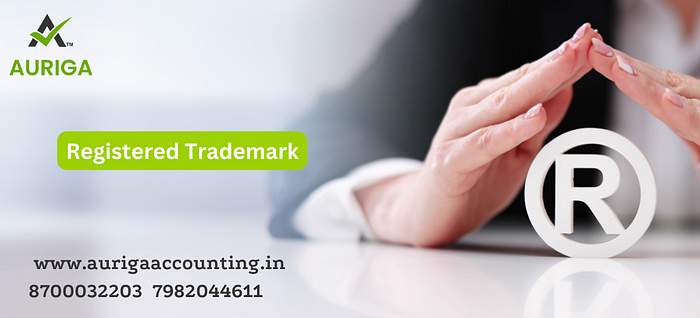
Registered Trademark
As per the provisions outlined in the Trademark Act of 1999, a registered trademark is characterized as a distinctive symbol or sign that serves to differentiate the goods or services of one business entity from those of another. This unique identifier is legally owned by a business or an individual, and its usage by any other entity necessitates explicit permission.
The registration process for a trademark under the Trademark Act 1999 involves meeting specific criteria, including the requirement for distinctiveness, non-offensiveness or prohibition, and dissimilarity to existing registered trademarks. Upon successful registration, the trademark owner gains exclusive rights to its use and holds the authority to pursue legal action against any unauthorized use by individuals or entities.
Trademark registration not only affords legal protection to the owner but also contributes to the establishment of brand recognition and customer trust. The validity of a trademark registration spans ten years, with the possibility of renewal for successive ten-year periods thereafter.

Protection for unregistered trademarks is grounded in common law and the principles of passing off. This implies that if an unregistered trademark has garnered a reputation and goodwill among consumers, its owner possesses the authority to prohibit others from using a similar or identical mark in a manner that could mislead consumers into thinking they are purchasing goods or services from the original trademark owner.
Nevertheless, the safeguarding afforded to unregistered trademarks is comparatively limited in comparison to registered trademarks, which benefit from statutory protection and are more straightforward to enforce. Registered trademarks confer exclusive rights upon their owners, and infringement of such trademarks constitutes a statutory offense. Conversely, owners of unregistered trademarks must rely on common law and passing-off mechanisms to defend their rights, which can prove to be more challenging and time-consuming.
Registered trademark Vs. Unregistered trademark
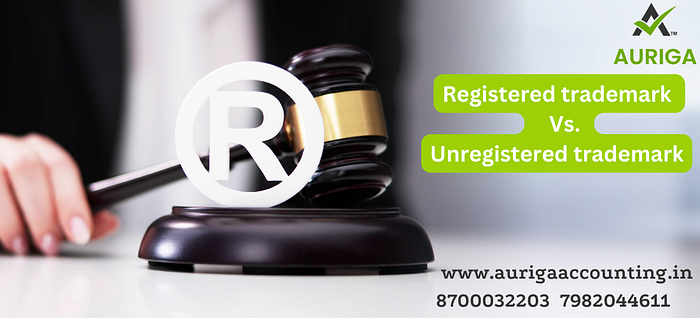

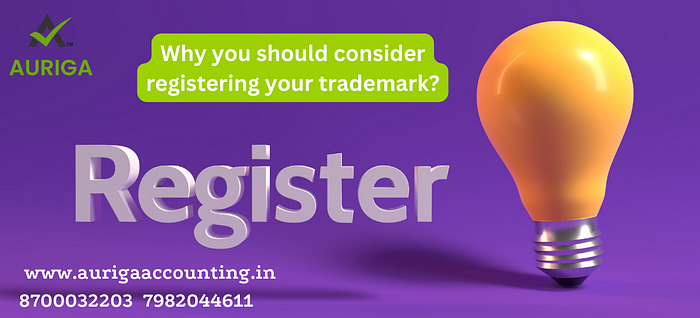
Why you should consider registering your trademark?
Registering a trademark under the Indian Trademarks Act, of 1999 offers numerous advantages and considerations for the trademark owner. Here are compelling reasons to contemplate the registration of your trademark:
- Exclusive Rights: By registering your trademark, you secure exclusive rights to utilize the mark in connection with the goods or services specified in your registration. This exclusivity safeguards your brand and business reputation, preventing others from using a similar or identical mark for the same or similar goods or services.
- Statutory Protection: Registered trademarks benefit from statutory protection granted by the Trademark Act, 1999. This legal foundation empowers you to take legal action against any infringement of your trademark, enabling you to prohibit unauthorized use of a similar or identical mark.
- National Protection: A registered trademark extends national protection across all of India, which is particularly crucial for businesses operating in multiple states. This ensures uniform safeguarding of your trademark rights throughout the country.
- Easy Enforcement: Enforcing a registered trademark is a more streamlined and effective process compared to enforcing an unregistered one. Owners of registered trademarks can seek remedies through the legal system, including obtaining injunctions and claiming damages.
- Asset Value: A registered trademark becomes a valuable asset for your business. It can be licensed, sold, or assigned to others, providing potential revenue streams and enhancing the overall value of your intellectual property portfolio.
- Brand Recognition: The act of registering your trademark contributes to building brand recognition and increasing brand value over time. As consumers associate your mark with your goods or services, the registered status reinforces your brand’s credibility and distinctiveness in the marketplace.
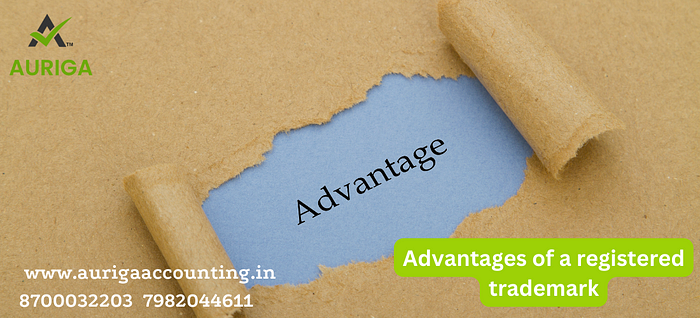
Advantages of a registered trademark
There are several advantages of having a registered trademark under the Indian Trademark Act, of 1999, which include:
- Legal Protection: Registering a trademark grants the owner exclusive legal protection, empowering them to prevent others from utilizing a similar or identical trademark in connection with identical or similar goods or services. This legal safeguard is firmly established in statutory law and can be judicially enforced.
2. Nation-wide Protection: A registered trademark ensures comprehensive protection across the entirety of India, a crucial aspect for businesses engaged in activities spanning multiple states.
3. Asset Value: The registration of a trademark transforms it into a valuable business asset. This asset can be leveraged through licensing, sale, or assignment, presenting opportunities for generating revenue.
4. Brand Recognition: A registered trademark plays a pivotal role in cultivating brand recognition and augmenting brand value over time. Consumers progressively associate the trademark with specific goods or services, enhancing the brand’s visibility and credibility in the market.
5. Legal Remedies: Owners of registered trademarks enjoy access to various legal remedies against infringement, encompassing injunctions, damages, and accounting of profits. Furthermore, it empowers the owner to initiate legal proceedings against infringers and counterfeiters.
6. Exclusive Rights: A registered trademark bestows upon the owner exclusive rights to use the trademark for the registered goods or services. This not only establishes a distinctive identity for the business but also acts as a deterrent, preventing others from duplicating or imitating the brand.
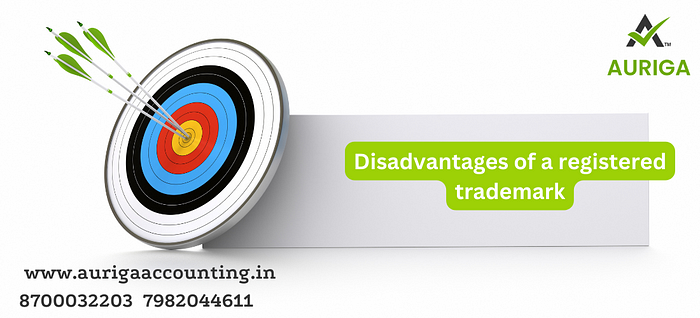
Disadvantages of a registered trademark
While there are several advantages of having a registered trademark under the Indian Trademark Act, of 1999, there are also some potential disadvantages, including-
- Cost: The process of trademark registration incurs fees, and the associated costs can surpass those of an unregistered trademark. Additionally, consideration must be given to the ongoing expenses related to maintaining the trademark registration.
2. Time-consuming: The registration procedure is time-intensive, spanning from several months to a few years for the trademark to achieve registration. This time investment can pose a challenge for businesses seeking to swiftly establish their brand presence.
3. Limited protection: The protection afforded by a registered trademark is confined to the specific goods or services for which it is registered. Consequently, the use of a similar or identical trademark for disparate goods or services may not be deemed infringement.
4. Renewal requirements: Periodic renewal is imperative for maintaining a registered trademark and neglecting this obligation can lead to a loss of protection. This aspect poses a potential disadvantage for businesses that fail to uphold their trademark registrations diligently.
5. Enforcement: Despite the legal remedies provided by a registered trademark against infringement, enforcing these rights can be intricate and costly. Pursuing legal action against infringers may entail a time-consuming and expensive process for the trademark owner.
6. Risk of cancellation: A registered trademark faces the risk of cancellation if it remains unused for an uninterrupted period of five years. This circumstance presents a drawback for businesses that do not consistently or regularly employ their trademarks.

Advantages of unregistered Trademark
Some potential advantages of using an unregistered trademark in India include:
- Cost Savings: Opting for an unregistered trademark can be a more cost-effective alternative as it sidesteps the lengthy and expensive process of filing and maintaining a registered trademark.
2. Immediate Protection: In contrast to the prolonged approval and registration timelines associated with registered trademarks, an unregistered trademark offers immediate protection against infringement. Owners of unregistered trademarks can swiftly take legal action if another business employs a similar mark in a manner likely to confuse.
3. Flexibility: Unregistered trademarks offer versatility in safeguarding various elements, including names, logos, slogans, and even trade dress (the overall appearance of a product or packaging). This adaptability is advantageous for businesses lacking a distinctive logo or name.
4. Wider Scope of Protection: As per the Indian Trademark Act, 1999, unregistered trademarks are safeguarded not only against identical or deceptively similar marks but also against marks likely to cause confusion or harm the reputation of the trademark owner. This broader scope enhances the protective measures available to businesses employing unregistered trademarks.

Disadvantages of unregistered Trademark
Some potential disadvantages of using an unregistered trademark in India include:
- Limited Geographic Protection: Unregistered trademarks, being safeguarded under common law, offer protection restricted to the specific geographic area where the mark is actively used. Expanding into new territories may necessitate the registration of the mark to secure nationwide protection for the owner.
2. Burden of Proof: In contrast to the presumed validity and enforceability of registered trademarks, owners of unregistered trademarks may face the challenge of proving the acquired reputation of the mark to establish their rights. Meeting this burden of proof can be a demanding and costly endeavor, particularly for owners less established in their industry.
3. Limited Remedies: The available remedies for owners of unregistered trademarks in cases of infringement are more constrained compared to those for registered trademarks. For instance, the owner of an unregistered trademark might be unable to recover damages for infringement and may only secure an injunction to cease the infringing activity.
4. Lack of Priority: In situations where two businesses employ the same or similar marks, the owner of the unregistered trademark might lack priority over the owner of the registered trademark. Consequently, if the owner of the registered trademark decides to register their mark, the owner of the unregistered trademark could be compelled to cease using their mark or face the risk of infringing on the registered trademark.
Frequently Asked Questions (FAQ)
1. Can I register a trademark internationally?
Yes, you can register a trademark internationally through the Madrid System. This system allows trademark owners to file one application to protect their marks in multiple countries.
2. How long does it take to register a trademark in India?
It takes approximately 6 to 24 months to register a trademark in India.
3. What can I do if someone infringes on my trademark?
You can take legal action against the infringer, including sending a cease and desist letter, filing a lawsuit, or seeking mediation or arbitration.
4. Can I trademark a slogan or a logo?
Yes, slogans and logos can be trademarked if they are unique and distinguish your goods or services from those of others.
5. Do I need a lawyer to register a trademark?
While it is not necessary to hire a lawyer to register a trademark, it is recommended as the process can be complex, and a lawyer can provide guidance and ensure that your application is filed correctly.

